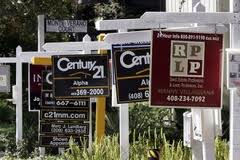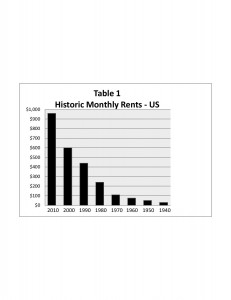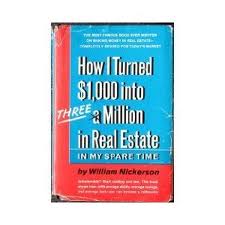These kids come to me and ask, ‘Hey Arnie, are you God?’. I just laugh and say ‘Nice try, but keep looking.‘
— Arnold Schwarzenegger
Buying fixer-upper houses, living in them, repairing them, and eventually renting them out is a safe way to generate short-term income and long-term economic security.
Even Arnold Schwarzenegger, in his new book Total Recall, cites investing in real estate as a valuable step on his road to financial success.
But, how can you be sure that a house is worth what you are offering to pay for it? Based on experience, we can “eyeball” the property and probably be able to make a pretty accurate estimate of its worth, maybe 75% of the time
That’s probably closer to 95% of the time for Arnold, with that Terminator vision of his.
Get a professional inspection
However, that’s not good enough. We need more information than our educated eyeball can provide in order to:
1.) Avoid any surprise defects. After you buy the property, trying to get reimbursed for those defects will be too late.
2.) Negotiate a lower selling price for the house.
I hire a professional inspector to provide me with a complete written inspection report that can be used to negotiate a lower price on the house if it uncovers anything that is in need of repair.
When having the physical inspection done, you should be aware of the most common house problems.
Ten Most Frequent House Problems
A survey of U.S. home inspectors resulted in this list of the most frequently encountered problems:
1.) Improper Surface Grading/Drainage
This is responsible for the most common of household maladies: water penetration of the basement or crawl space.
2.) Improper Electrical Wiring
Includes such situations as insufficient electrical service to the house, inadequate overload protection, and amateur, often dangerous, wiring connections.
3.) Roof Damage
Involves roof leakage, caused by old or damaged shingles or improper flashing.
4.) Heating Systems
Problems in this category include broken or malfunctioning operation controls, blocked chimneys, and unsafe discharge of exhaust.
5.) Poor Overall Maintenance
Includes signs such as cracked, peeling, or dirty painted surfaces, crumbling masonry, makeshift wiring or plumbing, and broken fixtures or appliances.
6.) Structural Problems
Many houses, as a result of problems in one or more of the other categories, sustain damage to such structural components as foundation walls, floor joists, rafters, window and door frames.
7.) Plumbing
Problems consist of the existence of old or incompatible piping materials, as well as faulty fixtures and waste lines.
8.) Exteriors
Flaws in a home’s exterior, including windows, doors, and wall surfaces, are responsible for the discomfort of water and air penetration. Inadequate caulking and/or weather-stripping are the most common culprits.
9.) Poor Ventilation
Perhaps due to overly ambitious efforts to save energy, many home owners have “over-sealed” their homes, resulting in excessive interior moisture. This can cause rotting and premature failure of both structural and non-structural elements.
10.) Miscellaneous
Includes primarily interior components, often cosmetic in nature. May include dents in doors and walls from children’s unsupervised indoor karate practice, or possibly from having Bigfoot (or the Governator) as a former resident. (I inserted those last two examples based on some unfortunate personal experiences I have had.)
A home inspector’s standard practice typically does not include the following, for which a specific license to inspect and identify is required:
- Asbestos
- Radon Gas
- Lead Paint
- Toxic Mold
- Pest Control
If you suspect the presence of any of these items, you would contract with inspectors in these areas independently.
Related Posts
Remove that Garbarge Disposal Now!
6 Steps to Roof Maintenance (for the Home that will Turn Into a Rental House)

















